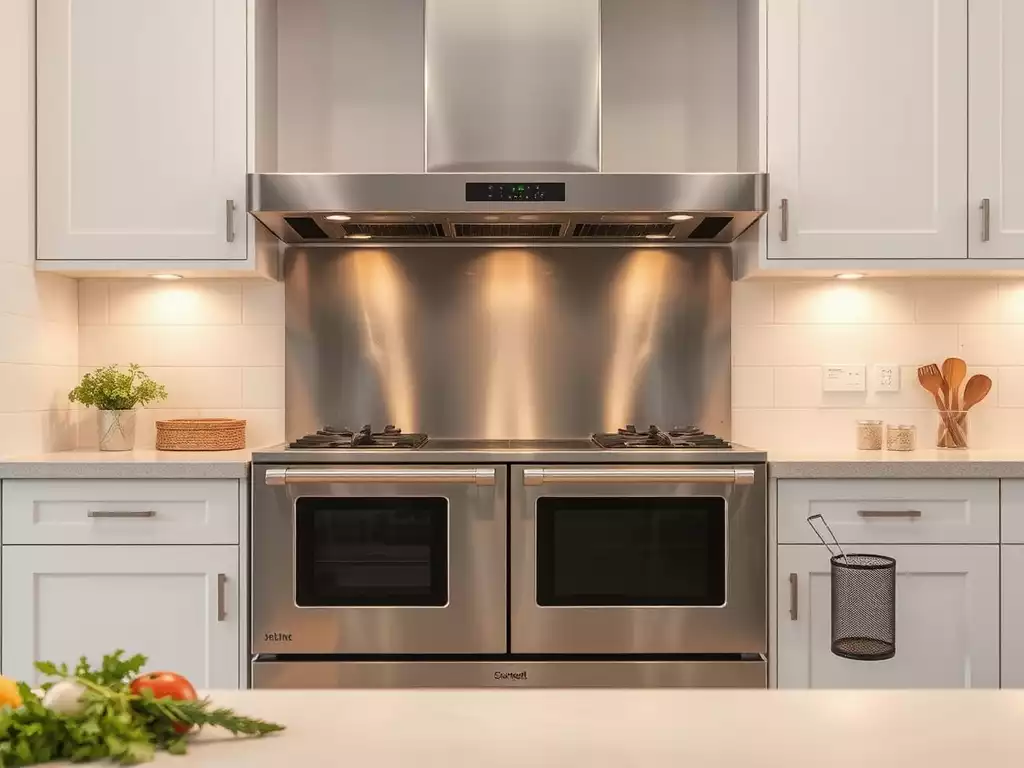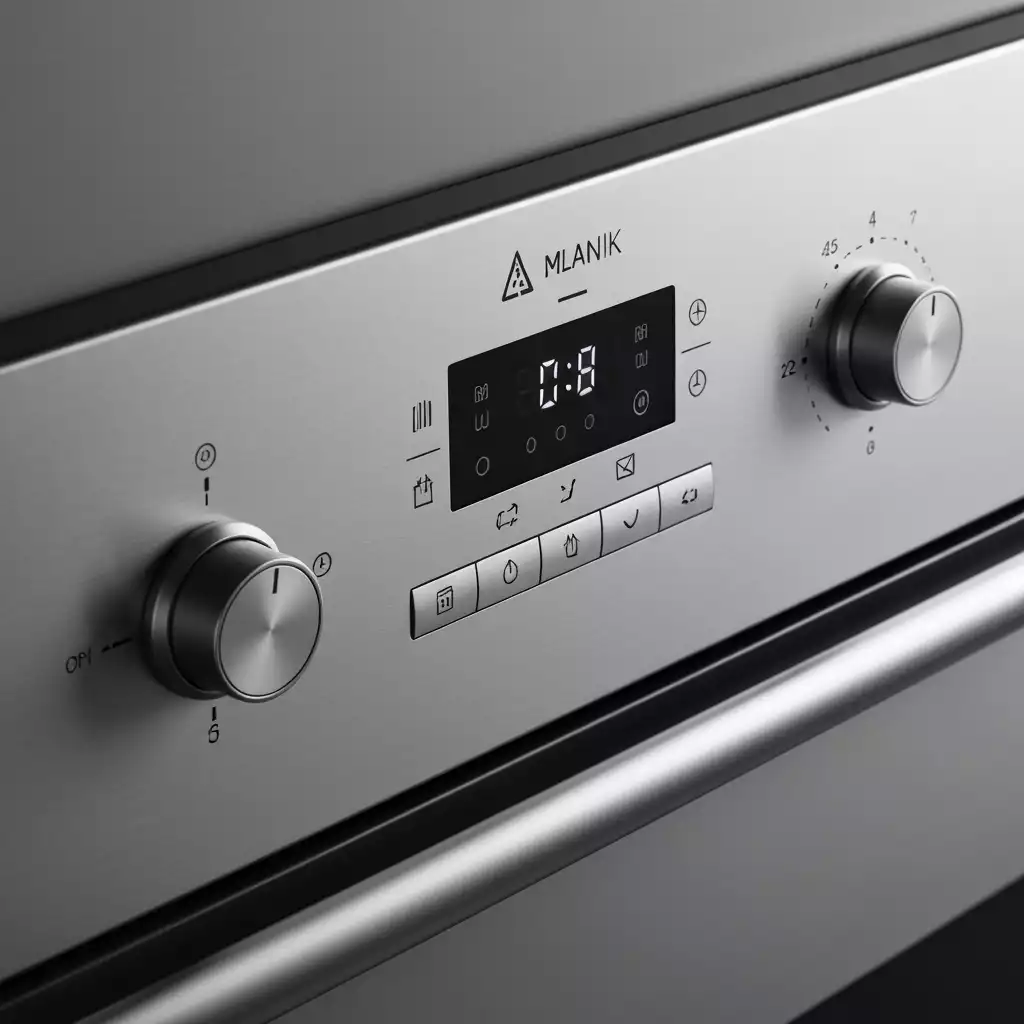Have you ever considered how your kitchen range can transform your cooking experience? From baking to sautéing, the right appliance can elevate your meals and simplify your culinary adventures.
What You Will Learn
- The versatility of kitchen ranges allows for various cooking methods, enhancing creativity in meal preparation.
- Understanding the differences between gas, electric, and dual-fuel ranges can help you choose the right option for your cooking style.
- Induction ranges offer speed, energy efficiency, and safety advantages, making them a popular choice among modern cooks.
- Key features to consider when selecting a kitchen range include fuel type, brand reliability, and essential functionalities.
- Following a structured purchasing process can lead to a well-informed decision, ensuring the chosen range meets your culinary needs.
- Staying updated on kitchen technology trends can enhance your cooking efficiency and enjoyment over time.
Comparing Kitchen Range Types and Their Benefits
This visual highlights the distinctions between various kitchen range types and the advantages of induction technology, offering key considerations for selection.
Traditional Range Types
- • Gas: Quick heat adjustments, visual flame.
- • Electric: Even heating, easier to clean.
- • Dual-Fuel: Gas stovetop, electric oven.
Induction Range Benefits
- ▶ Speed: Faster cooking times, quicker meal prep.
- ▶ Energy Efficiency: Reduced heat loss, lower utility bills.
- ▶ Safety: Cool-to-touch surface, reduced burn risk.
Key Selection Considerations
- ✓ Fuel Type: Gas, Electric, or Induction.
- ✓ Budget & Features: Convection, Smart Tech.
- ✓ Performance: BTU output, energy efficiency.
Purchase Steps
- Set Budget: Align with needs/preferences.
- Research Models: Specific features.
- Visit Stores: In-person viewing, questions.
- Check Reviews: Real-world insights.
- Consult Pro: For installation/compatibility.
Understanding Kitchen Ranges and Their Importance in Modern Cooking
When it comes to whipping up delicious meals, kitchen ranges play a crucial role in our culinary adventures. A kitchen range combines the stove and oven, giving us the versatility to cook everything from a simple breakfast to a gourmet dinner. Whether you’re a home chef or a seasoned pro, understanding what a kitchen range can offer is essential for anyone looking to enhance their cooking experience!
In today’s fast-paced world, these appliances have evolved significantly, integrating technology and design to meet the needs of modern cooks. They are not just tools; they’re an extension of our culinary creativity and efficiency. Let’s dive into how kitchen ranges fit into our daily cooking practices.
The Role of a Kitchen Range in Culinary Practices
A kitchen range serves as the heart of the kitchen, where the magic happens! This appliance allows us to prepare meals with precision and flair. It’s where we sauté, bake, roast, and boil—essentially, it’s where we turn ingredients into delightful dishes. For those interested in improving their culinary skills, exploring plant-based protein options can add another dimension to your cooking.
- Versatility: Kitchen ranges offer a variety of cooking methods, making it easy to experiment with different recipes.
- Space Efficiency: Combining the oven and stovetop saves valuable kitchen space.
- Control: Fine-tuning heat levels and cooking times ensures our meals come out just right!
By understanding the vital role of kitchen ranges in our culinary practices, we can make more informed decisions about which features and specifications matter most in our cooking endeavors.
Overview of Kitchen Range Types: Gas, Electric, and Dual-Fuel
Choosing the right kitchen range can be overwhelming due to the variety of options available. The three main types of kitchen ranges are gas, electric, and dual-fuel, each with unique advantages. Let’s break them down!
- Gas Ranges: Known for their quick heat adjustments and visual flame, gas ranges are often favored by professional chefs.
- Electric Ranges: These provide even heating and are generally easier to clean, making them popular among home cooks.
- Dual-Fuel Ranges: Combining gas stovetops with electric ovens, dual-fuel ranges offer the best of both worlds.
Understanding these options can greatly influence your cooking experience and efficiency. Each type has distinct features that cater to different cooking styles and preferences.
Exploring the Benefits of Induction Ranges for Home Cooking
Induction ranges are gaining popularity, and it’s easy to see why! They use electromagnetic energy to heat cookware directly, offering several advantages over traditional cooking methods.
- Speed: Induction cooking is faster than gas or electric, allowing for quicker meal preparation.
- Energy Efficiency: With less heat loss, induction ranges are more energy-efficient, which can translate into lower utility bills!
- Safety: The surface remains cool to the touch, reducing the risk of burns and accidents in the kitchen.
As a passionate cook, I’ve personally found induction ranges to be a game-changer in my kitchen, making it easier to manage multiple dishes without worrying about uneven cooking. These benefits make induction ranges a fantastic option for anyone looking to elevate their cooking experience. For those always on the go, learning how to make money from what you already know can further enhance your financial efficiency.
We Want to Hear From You!
What features do you consider most important when selecting a kitchen range? Share your thoughts below:
Frequently Asked Questions About Kitchen Ranges
Q: What are the main types of kitchen ranges?
A: The main types are gas, electric, and dual-fuel ranges. Gas ranges offer quick heat adjustments, electric ranges provide even heating, and dual-fuel ranges combine a gas stovetop with an electric oven.
Q: What are the benefits of an induction range?
A: Induction ranges offer faster cooking times, greater energy efficiency due to less heat loss, and enhanced safety because the cooking surface remains cool to the touch.
Q: What key features should I consider when buying a kitchen range?
A: Key features include the type of fuel (gas, electric, or induction), brand reliability, essential functionalities like convection ovens and smart features, and performance metrics such as BTU output and energy efficiency.
Q: How can I make an informed decision when purchasing a kitchen range?
A: To make an informed decision, you should set a budget, research specific models and their features, visit stores for in-person viewing, check online reviews, and consult with a professional for installation and compatibility advice.
Q: Why is staying updated on kitchen technology trends important?
A: Staying updated on kitchen technology trends helps you choose a range that not only meets your current cooking needs but also enhances efficiency and enjoyment, adapting to new innovations like smart technology, eco-friendly features, and advanced cooking systems.
Summarizing Key Considerations for Selecting Your Kitchen Range
Choosing the right kitchen range can feel overwhelming at times. After diving into the various types, brands, and features, it’s essential to recap the most important considerations. With so many options available, focusing on what truly matters can help you make the best decision for your cooking needs.
When evaluating a kitchen range, keep these key features in mind:
- Type of fuel: Gas, electric, or induction
- Brand reliability and reputation
- Essential functionalities like convection ovens and smart features
- Performance metrics such as BTU output and energy efficiency
Each of these factors plays a role in how well your kitchen range will serve you in daily cooking tasks. It’s important to balance your preferences with practicality to ensure you have a range that meets your culinary needs.
Next Steps: How to Proceed with Your Kitchen Range Purchase
Now that you’ve gathered all the necessary information, what’s next? The process of purchasing your kitchen range can be made smooth with a little planning. Here’s a simple guide to help you navigate your purchase:
- Set a budget that reflects your needs and preferences.
- Research specific models and their features.
- Visit stores to see the ranges in person and ask questions.
- Check online reviews and customer feedback for real-world insights.
- Finally, consult with a professional if you’re unsure about installation or compatibility.
By following these steps, you’ll be well-equipped to make a confident choice. Remember, investing time in research can lead to a kitchen range that truly enhances your cooking experience!
Kitchen Trends: Staying Updated on Innovations in Kitchen Technology
The world of kitchen technology is always evolving, and staying updated on the latest trends can benefit your cooking efficiency and enjoyment. New features and technologies are regularly introduced, making kitchen ranges more user-friendly than ever. For instance, understanding affordable tech gadgets under $50 can give you insights into how small innovations can make a big difference.
Some of the current trends to watch include:
- Smart technology integration for remote control and monitoring
- Eco-friendly features aimed at reducing energy consumption
- Advanced convection systems for even cooking
- Flexible burners and customizable cooking zones in induction ranges
Keeping an eye on these innovations can help you select a range that not only meets your current needs but also stands the test of time as your culinary skills and tastes evolve. Embrace the changes in kitchen technology, and your cooking adventures will surely benefit!
Recap of Key Points
Here is a quick recap of the important points discussed in the article:
- Versatility: Kitchen ranges allow for various cooking methods, enabling culinary experimentation.
- Types of Ranges: Understand the differences between gas, electric, and dual-fuel ranges to choose the best fit for your cooking style.
- Induction Benefits: Induction ranges offer speed, energy efficiency, and safety advantages over traditional cooking methods.
- Key Features: Focus on fuel type, brand reliability, essential functionalities, and performance metrics when selecting a kitchen range.
- Research Before Purchase: Set a budget, research models, visit stores, check reviews, and consult professionals to ensure a smart purchase.
- Stay Updated: Keep an eye on kitchen technology trends to choose a range that meets both current and future culinary needs.


